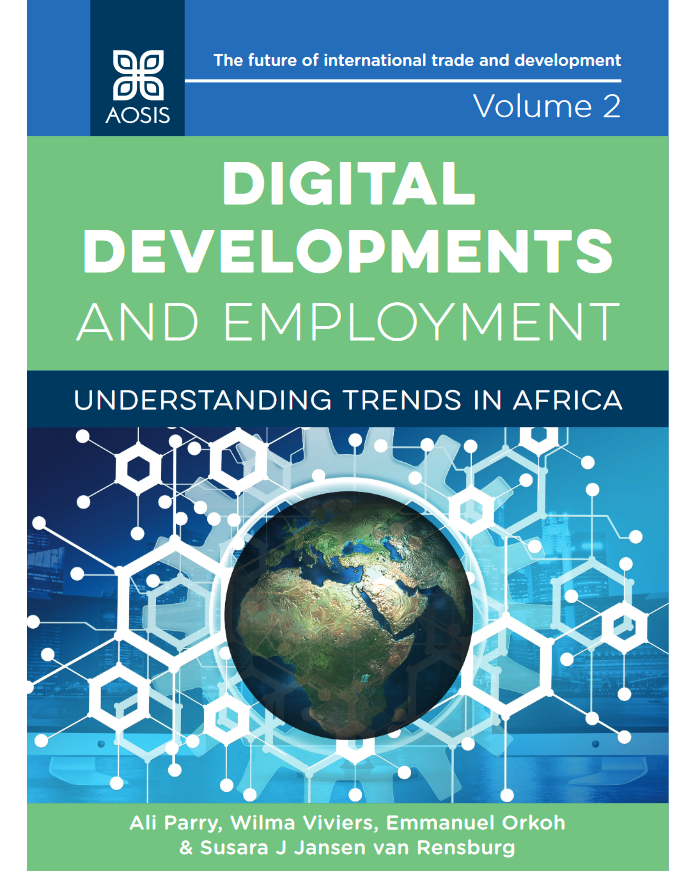A new book written by a group of researchers from the TRADE research entity at the North-West University (NWU) delves into digital developments in Africa and their effects on employment. Titled Digital developments and employment: Understanding trends in Africa, the book is published by AOSIS under an open-access licence.
According to the book’s authors (Ali Parry, Prof Wilma Viviers, Dr Emmanuel Orkoh and Dr Adelia Jansen van Rensburg), there is broad consensus in the literature that job creation and productive employment are critical building blocks in the creation of a vibrant, inclusive economy. An important premise in the book is that employment is a leading determinant of inclusive growth, which has become a key policy imperative across the African continent.
While the digital era has the potential to expand employment by opening up new professional pathways and market opportunities, it also poses risks – not least of which is that increasingly sophisticated digital technologies will displace workers in “traditional” jobs, leading to higher unemployment levels. This is something that Africa can little afford, given its high levels of unemployment and informal (and thus vulnerable) employment.
The book uses both qualitative and quantitative research methods to explore the digital developments-employment nexus, comparing qualitative findings from a broad literature review with actual quantitative results from an empirical study that the authors conducted using a longitudinal regression analysis of 20 African countries. A disaggregated approach was adopted for the empirical study, providing important insights into the employment effects of digital developments per sector, gender and country income group. While some results were expected, others were surprising.
The book makes for absorbing reading for academics and researchers in the economic development field who are interested in acquiring a better understanding of the opportunities and challenges associated with digital advances in Africa, and how policymakers should respond.
Digital developments and employment: Understanding trends in Africa can be accessed at:
Digital developments and employment: Understanding trends in Africa | AOSIS Scholarly Books

